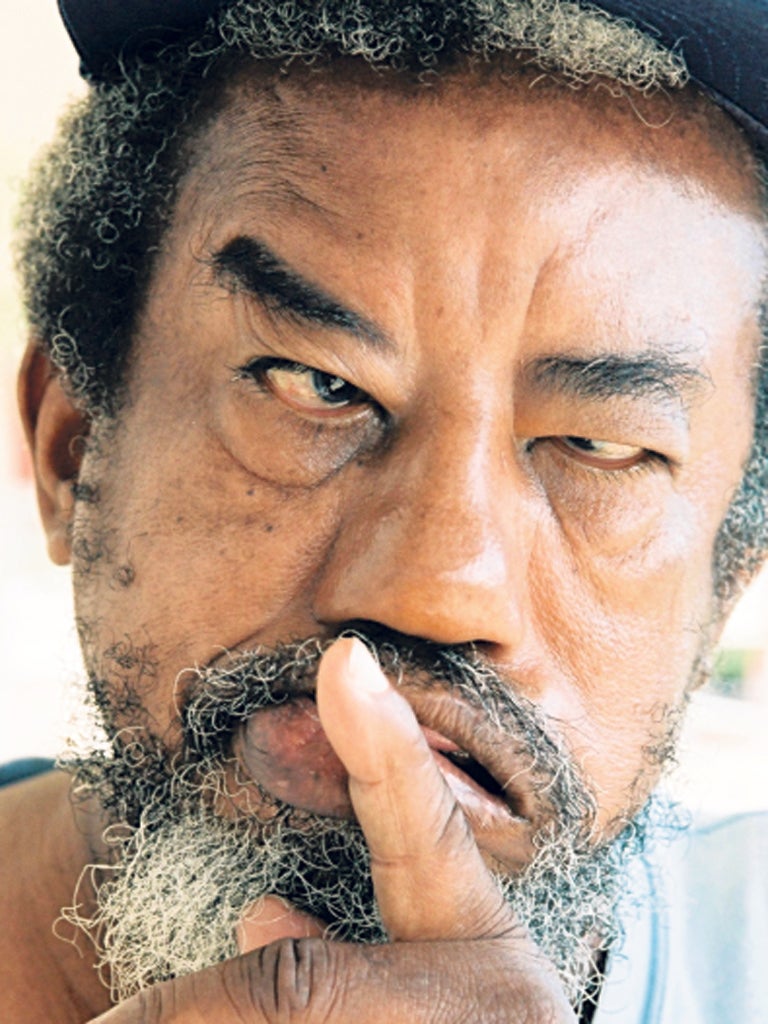King Stitt: Pioneer of 'toasting', a major influence on rap

Your support helps us to tell the story
From reproductive rights to climate change to Big Tech, The Independent is on the ground when the story is developing. Whether it's investigating the financials of Elon Musk's pro-Trump PAC or producing our latest documentary, 'The A Word', which shines a light on the American women fighting for reproductive rights, we know how important it is to parse out the facts from the messaging.
At such a critical moment in US history, we need reporters on the ground. Your donation allows us to keep sending journalists to speak to both sides of the story.
The Independent is trusted by Americans across the entire political spectrum. And unlike many other quality news outlets, we choose not to lock Americans out of our reporting and analysis with paywalls. We believe quality journalism should be available to everyone, paid for by those who can afford it.
Your support makes all the difference.The Jamaican deejay and toaster King Stitt coined some of the most memorable vocal introductions and interjections to come out of the ska and rock steady eras. Particularly arresting was the tirade that prefaced "Fire Corner", his first hit for the producer Clancy Eccles in 1968: "No matter what the people say / These sounds leads [sic] the way / It's the order of the day / From your boss deejay, / I, King Stitt / Haul it from the top to the very last drop."
Facially disfigured from birth, Stitt made the best of the bad cards life dealt him. At the start of "Lee Van Cleef", his homage to the the spaghetti western star, he boasted, "These are the days of wrath, I am the ugly one," while other punch lines referenced the scriptures – "I for I, a tooth for a tooth, I am the one you've got to salute" in "I For I", and "You say you rule nation with version, Well, I'm the King of Kings, I rule kingdoms!" in "King Of Kings". Some of them were later revived by Musical Youth.
Along with Count Machuki and U-Roy, Stitt adapted the jive talk of the American radio presenters he had heard broadcasting from Miami and New Orleans and pioneered a new style of patois and slang-infused rhyming on the sound systems that dominated Kingston night-life. Known as "toasting" and popularised throughout the late 1960s and well into the '70s by performers like Stitt, Big Youth and I-Roy, this genre is considered the Jamaican progenitor of rap, while its influence resonates to this day throughout dancehall, R&B, hip-hop and grime.
Born Winston Sparkes in 1939, he was nicknamed Stitt because of his stuttering as a child. He turned this into a positive by calling himself King Stitt when he began deejaying for the Downbeat Sound System, owned and operated by the record producer Clement "Sir Coxsone" Dodd.
This happened in 1957 after Machuki, the main deejay, spotted him dancing and surmised he might make a useful addition to a team that also comprised Red Hopeton. "We had the better records, and a more intelligent set of followers," said Stitt of Downbeat's rivalry with the Trojan sound system belonging to Duke Reid that inspired "Dance Beat", one of his '70s singles. Stitt eventually took over from Machuki and was crowned "king of the deejays" in 1963.
However, as Coxsone refocused his energy away from the sound system business to recordings at his Studio One operation in the mid-'60s, Stitt earned a living on building sites in Ocho Rios, the tourist resort in the north of the island, while occasionally guesting with Jack Ruby's sound system. Eccles, a singer-producer who had worked with both Dodd and Reid, brought him back to Kingston and began recording him over the backing tracks cut by his supreme session band the Dynamites to create off the cuff gems such as "Vigorton 2", "Soul Language" and "Herbman Shuffle", his paean to ganja.
"They were playing 'Beardman Ska' and one of my friends in the studio made a big spliff," he recalled. "And I took the spliff from him, and light it, and I just say 'Smoking is a habit'. And Andy Capp [engineer Lynford Anderson] say, 'Drag it! Crab it!'. That was how 'Herbman Shuffle' was born,".
These proto-reggae recordings proved particularly popular in Britain with the skinhead market of the early 1970s. Stitt's skits, though, were soon outdone by U-Roy, Big Youth and I-Roy, whose free-flowing style was more expansive, and he stopped recording.
Stitt lived next door to Studio One in Kingston and renewed his association with Dodd when the producer returned to Jamaica in the 1990s. They made an album, Dance Hall '63, on which Stitt successfully recreated the heyday of the sound system.
In 2002, he took part in the Legends of Ska concert series in Canada, and "versioned" "The Original Ugly Man" over a dub of Serge Gainsbourg's "Des Laids Des Laids" for an expanded reissue of the late Frenchman's Aux Armes Et Caetera album. Stitt participated in The Studio One Story documentary put together by Soul Jazz and continued performing until last October.
Stitt died of prostate cancer. Big Youth, one of many deejays and toasters influenced by Stitt, said: "He was the first king. Stitt really did a lot for the music, always had a nice vibe."
Winston Sparkes (King Stitt), reggae toaster and songwriter: born Kingston, Jamaica 17 September 1939; one daughter; died Kingston 31 January 2012.
Join our commenting forum
Join thought-provoking conversations, follow other Independent readers and see their replies
Comments